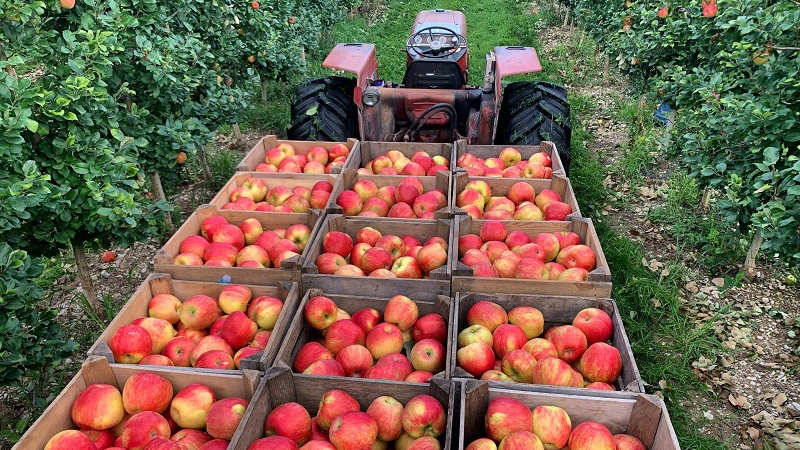Washington’s Long, Hot Summer: Is Climate Change To Blame?
This past summer, all around the Columbia Basin in Eastern Washington, growers said, “I’ve never seen anything like this,” referring to the drought and record high temperatures.
Tim Smith, professor emeritus at Washington State University Extension, who has spent 42 years in the tree fruit industry, confirms what the growers were experiencing.
“The weather is so unpredictable and we keep setting records of all sorts. What I think we are experiencing is screwed-up weather because of climate change,” he said. “We grow crops in this area because of our climate. If the climate changes, it’s not for the best. The trend we are seeing is unreliability.”
Eastern Washington is blessed as an excellent region for growing a variety of fruits. But extreme heat, low water supplies, catastrophic wildfires, earlier harvests, and shifting crop-growing zones were impacting crops.
Berries Suffer
For example, the soaring temperatures were cutting blueberry yields, says Alan Schreiber, owner of Schreiber & Sons Farm and administrator of the Washington Blueberry Commission. Schreiber says this year’s state blueberry yields were projected to be 110 million pounds, but were revised down to 102 million due to the heat.
Bill Michener, owner of the charming and family-friendly U-Pick Bill’s Berry Farm, located in the Yakima Valley, WA, starting picking two to three weeks early. They lost some blueberries because the excessive heat caused the fruit to get soft. Michener says he’s never seen heat like this before and so early.
“It’s been a hot summer — a warm year. Clear back to March it was warm and it’s still warm,” he said in late October.
His daughter, Larelle, adds “Sunlight is only a small percentage of the problem. The ambient air temperature is a big issue.”
Water Shortage
Another big headache for growers were irrigation water shortages due to the lack of snowpack in the Cascade Mountains. The Micheners depend on the local irrigation district, but along with many other growers, did not get their full allotment. They hold junior water rights. They share a well with neighbors and this year added expenses included pump repairs and the cost of power to pump the water.
With continued warming, all farmers in the Yakima Valley will have to make hard choices about planting. With perennial crops like blueberries, it’s not easy, especially with a dicey water supply.
“I’m hoping and praying that we can get a decent snowpack and have a good winter,” says Michener, echoing the sentiments of all who farm now and who want to have their children and grandchildren be future growers in the Pacific Northwest. ●
SIDEBAR: One Crazy Vintage
Winemaker Caleb Foster, who works for J Bookwalter Wines of both Richland and Woodinville, WA, has produced balanced fine wines since 1991.
“The trick in wine is you want things ripe and you want your alcohol and acid balance,” he says, “with the colors and the flavors.”
How did the heat affect the vineyards Foster sources for grapes?
“Global data shows that everyone is having hotter vintages around the world,” Foster says. “Northern climates have earlier and hotter vintages than in the history of wines in the last 100 years.”
Ripening effectively became a summer event, not a fall event.
“This year on Aug. 13, we had grapes that were 25% sugar. We don’t normally see that 25% sugar developed until Sept. 13,” he said. “We saw fruit raisining on the vines’ afternoon sunny side. And we also saw one variety raisining in the shade of the plant, in the canopy zone. It wasn’t exposed to the sun at all. Those vines lost 40% of their crop.”









